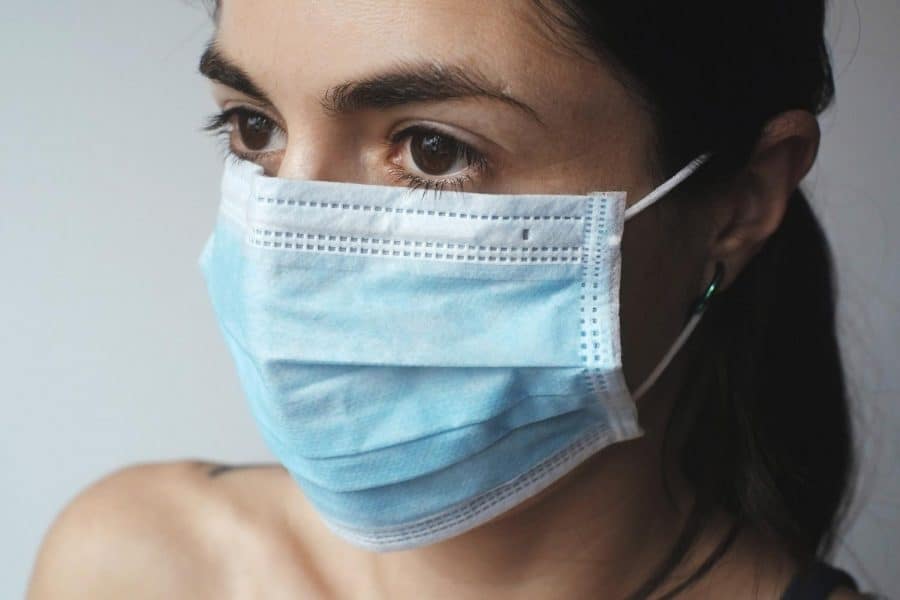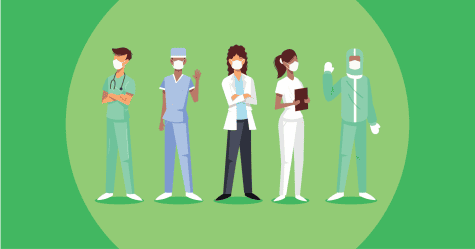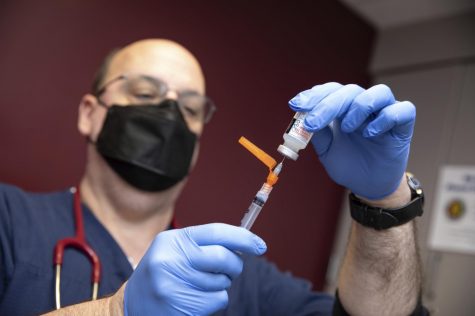As the state reopens, immunocompromised students urge others to stay home
May 13, 2020
With states enacting stay-at-home orders during the coronavirus pandemic, people across the country are social distancing and doing their part to put a stop to the virus. However, not everyone abides by self-distancing rules, using their free time to socialize and hang out with friends. Four people with health problems that cause them to be immunocompromised explain why this could mean life or death for them.
COVID-19 is bringing out the best and the worst of people. Some are bringing groceries to the elderly and thanking essential workers by tipping more. Others are claiming the virus is a government hoax and not adhering to the stay-at-home and social distancing orders. While these people may believe that they’ll be OK even if they get the virus, not everyone has this privilege.
For people who have compromised immune systems because of health problems, sheltering in place is their only option during times like these. Simple outings like going to the store or the doctor’s office can expose them to an illness they may never recover from.
Vallie Castle, a sophomore majoring in advertising, began to have health problems when she was 12 and has been diagnosed with several health problems since, including an autoimmune disorder. After coming home from an early spring break, she’s taken precautions and hasn’t left the house in order to minimize her risk of contracting COVID-19.
“Some of my good friends are back home, and they’re inviting all of their high school friends over to drink and play games and stuff,” Castle said. “It kind of aggravates me because I don’t know if they’re naive or if they think they’re young and healthy, which they luckily are, but it puts everybody else at risk, like their grandmother, their aunt and uncle. They could give it to anyone.”
Cecilia Barnard, a graduating senior who majored in history and English, has asthma and a connective tissue disorder that can be worsened by respiratory illnesses like COVID-19. For her, even common illnesses like the flu can quickly turn into pneumonia, making her incredibly nervous about the spread of the coronavirus.
“I just want to sit down with some people and say, ‘Hey, there are people who your actions are going to harm directly,’” Barnard said. “You know people that this could kill, whether you know you do or not. This virus could very easily kill you.”
Both Castle and Barnard said that when people ignore social distancing rules, they put people with immune disorders at a greater risk for contracting the virus. For many, even health problems like the flu, the common cold and sinus infections can take double the amount of time to recover from and might even present worse symptoms in them than the average person.
“I look healthy,” Castle said. “If somebody saw me walking around, they would be like ‘Oh, she’s young. She’s healthy. She could fight off coronavirus,’ when I really probably couldn’t. So I wish people our age would take it more seriously instead of risking it for everybody else.”
Anna Peacock, a UA graduate, was diagnosed with an autoimmune disorder after developing a brain tumor during her freshman year at the University. To take extra precautions, she has only been leaving the house for doctor appointments when necessary and wearing a face mask and gloves when she does.
As a healthcare worker, Peacock explained that she understands everyone’s frustrations with social distancing and businesses being closed, but these precautions are set in place for the safety of everyone, including those with weakened immune systems.
“I can only imagine how difficult it is to be a business owner right now, but the reality is that people are at home or at the hospital and they’re dying alone from this,” Peacock said. “This is real, and people are literally dying. If someone thinks that their business being open is more important than a life, then I can’t wrap my head around that.”
Peacock said that if everyone stops social distancing, then the effects won’t be seen for weeks, making it harder on those who cannot leave the house.
“Over the past couple of days, it seems like people have gotten lax, especially over Easter,” Peacock said. “People started feeling a bit more comfortable, and that’s because the work we are doing now, we don’t see until two weeks later. So if we let out now, in two weeks is when we’ll see the harm of picking everything back up.”
Caroline Gazzara-McKenzie, the assistant editor of the Alabama Alumni Magazine, was diagnosed with two autoimmune disorders after getting in an accident during her freshman year at the University that jump-started a genetic condition called ankylosing spondylitis. Now she has to be extremely careful during flu season because it can take her up to six weeks to rebound from an illness.
Garraza-McKenzie said that it’s important for everyone to look at the bigger picture and recognize that their actions now could affect the lives of the people around them.
“Yes, this sucks right now,” Gazzara-McKenzie said. “It’s hard mentally, physically, emotionally. We are in an entirely different world right now because of this, but it’s important to think beyond yourself.”
For people with compromised immune systems and other health problems, they often don’t have the privilege of not social distancing without risk during times like these. However, they still have to get groceries, go to doctor’s appointments and do other necessary tasks outside the home, putting them at risk for COVID-19 even when they take precautions. Therefore, they urge people with fewer health problems to also try to do their part by social distancing so that the spread can be contained and put fewer people at risk.
“I can’t fix what happened to me,” Gazzara-McKenzie said. “I can’t control it. My parents didn’t even know that there was a genetic condition in my family. It’s all about just looking at it and changing your perspective and just accepting what’s going to happen. With this, we have to accept that this isn’t going away anytime soon.”









